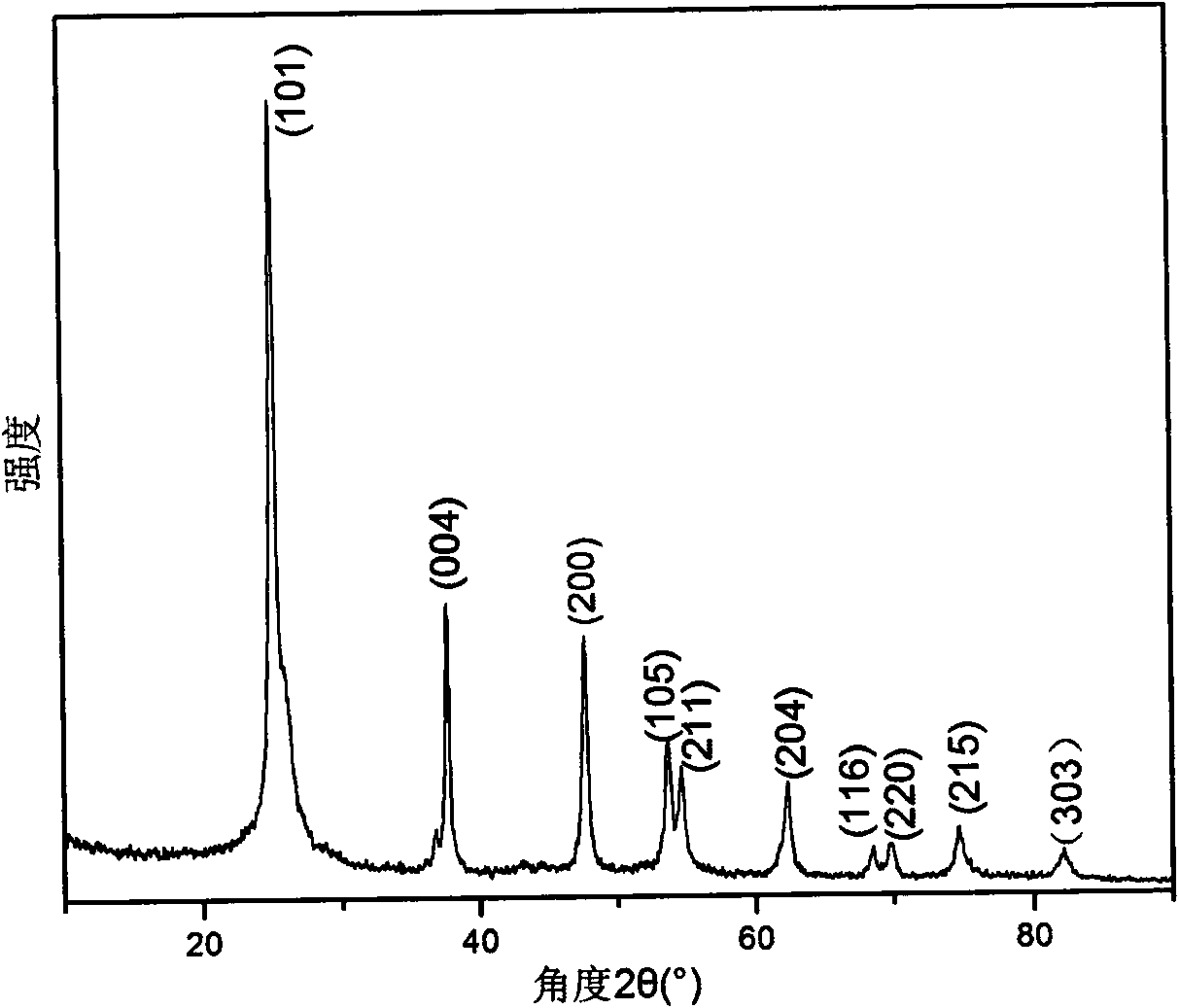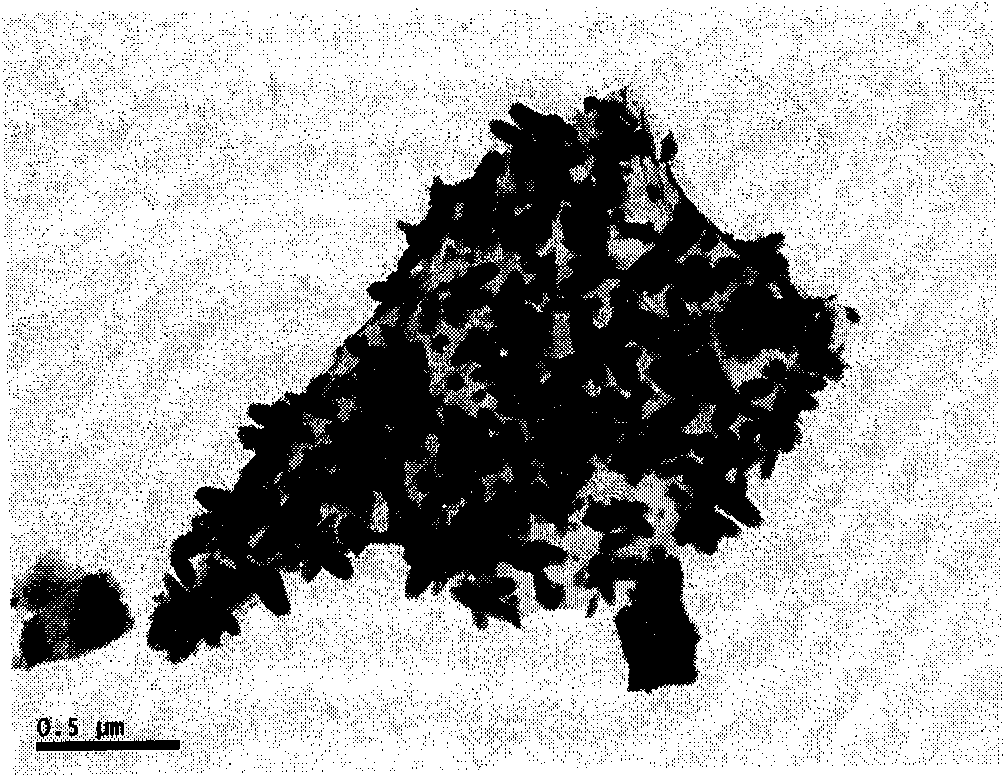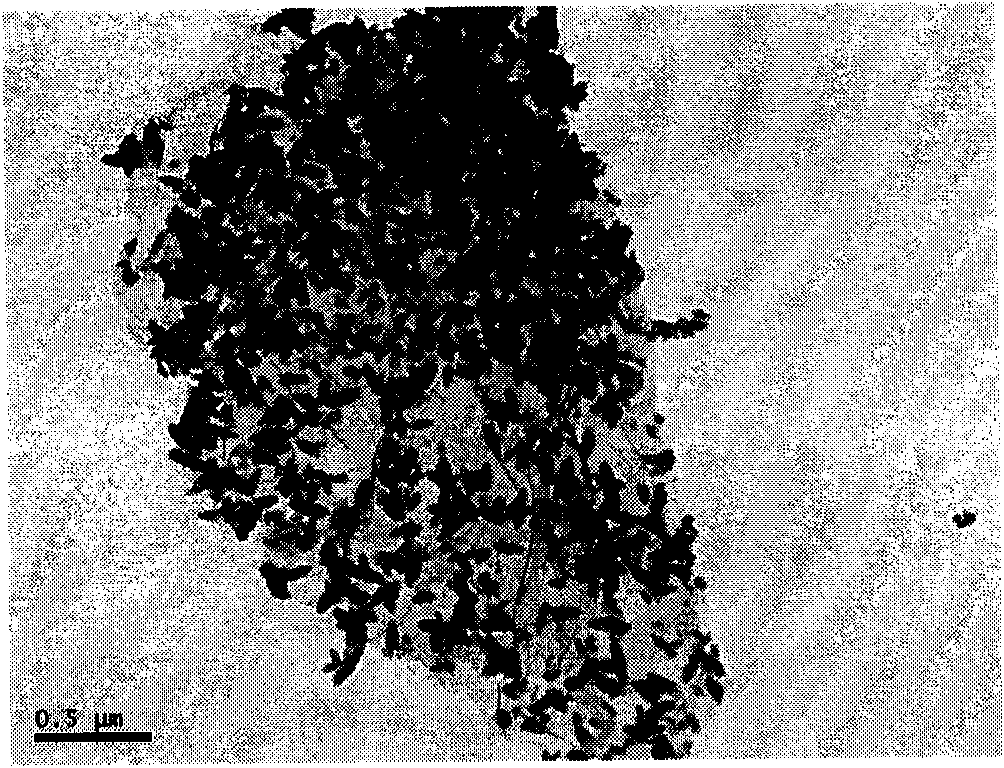Method for preparing graphene-based titanium dioxide composite photocatalyst by radiation of electron beams
A technology of electron beam irradiation, titanium dioxide
- Summary
- Abstract
- Description
- Claims
- Application Information
AI Technical Summary
Problems solved by technology
Method used
Image
Examples
Embodiment
[0028] Firstly, graphene is prepared according to the prior known technology (this technical method can refer to the document J.Am.Chem.Soc., 2008, 130(18), 5856-5857).
[0029] 1. Preparation of graphene
[0030] (1), preparation of graphene oxide
[0031] A certain amount of potassium persulfate (K 2 S 2 o 8 ) and phosphorus pentoxide (P 2 o 5 ) was dissolved in concentrated sulfuric acid, heated to 80°C, added a certain amount of natural graphite, kept at 80°C for 4.5 hours, and then cooled to room temperature; then diluted with deionized water, and left overnight; then filtered, washed, and the obtained filter residue was released Dry in a vacuum oven at 60°C; dissolve the dried filter residue in concentrated sulfuric acid, and slowly add potassium permanganate (KMnO 4 ), stirred at 35°C for 2 hours; then diluted with deionized water, and slowly added 30% hydrogen peroxide (H 2 o 2 ); then filter and wash, and vacuum-dry the washed product at 60° C. to obtain a gra...
PUM
 Login to View More
Login to View More Abstract
Description
Claims
Application Information
 Login to View More
Login to View More - R&D
- Intellectual Property
- Life Sciences
- Materials
- Tech Scout
- Unparalleled Data Quality
- Higher Quality Content
- 60% Fewer Hallucinations
Browse by: Latest US Patents, China's latest patents, Technical Efficacy Thesaurus, Application Domain, Technology Topic, Popular Technical Reports.
© 2025 PatSnap. All rights reserved.Legal|Privacy policy|Modern Slavery Act Transparency Statement|Sitemap|About US| Contact US: help@patsnap.com



